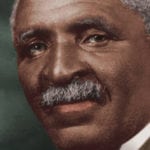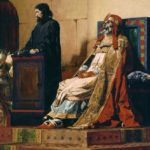 Mysteries
Mysteries  Mysteries
Mysteries  History
History 10 Surprising Stories About the Texas Rangers
 Humans
Humans 10 Philosophers Who Were Driven Mad by Their Own Theories
 Miscellaneous
Miscellaneous 10 Video-Game-Worthy Weapons and Armors from History
 Weird Stuff
Weird Stuff 10 Psychics Who Accurately Predicted Wartime Events
 The Arts
The Arts 10 Pieces of Art Inspired by a Broken Heart
 Health
Health 10 Science Fiction-Sounding New Medical Treatments
 History
History 10 Surprising Facts About the Father of Submarine Warfare
 Space
Space Ten Astonishing New Insights into Alien Worlds
 Weird Stuff
Weird Stuff 10 Bizarre Summer Solstice Rituals Still Practiced Today
 Mysteries
Mysteries Top 10 Haunting Facts About the Ghost Ship MV Alta
 History
History 10 Surprising Stories About the Texas Rangers
 Humans
Humans 10 Philosophers Who Were Driven Mad by Their Own Theories
Who's Behind Listverse?

Jamie Frater
Head Editor
Jamie founded Listverse due to an insatiable desire to share fascinating, obscure, and bizarre facts. He has been a guest speaker on numerous national radio and television stations and is a five time published author.
More About Us Miscellaneous
Miscellaneous 10 Video-Game-Worthy Weapons and Armors from History
 Weird Stuff
Weird Stuff 10 Psychics Who Accurately Predicted Wartime Events
 The Arts
The Arts 10 Pieces of Art Inspired by a Broken Heart
 Health
Health 10 Science Fiction-Sounding New Medical Treatments
 History
History 10 Surprising Facts About the Father of Submarine Warfare
 Space
Space Ten Astonishing New Insights into Alien Worlds
 Weird Stuff
Weird Stuff 10 Bizarre Summer Solstice Rituals Still Practiced Today
10 Revealing Diary Entries Of Famous Figures
Before the age of Twitter and Facebook, the best way to keep track of your life was through a diary or journal. For most, a diary is a place of private introspection where one can transfer thoughts and feelings onto paper. In some cases, diaries are interesting documents that reveal a story of a certain time or place, like the diaries of Anne Frank and Samuel Pepys. It is no surprise that many diaries and journals of famous people have been published after their deaths.
10 President Harry Truman
July 25, 1945
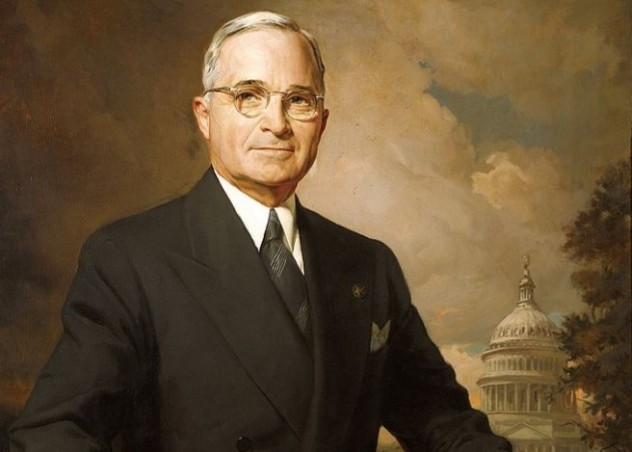 We met at 11:00 AM today. That is, Stalin, Churchill and the U.S. president. But I had a most important session with Lord Mountbatten and General Marshall before that. We have discovered the most terrible bomb in the history of the world. It may be the fire destruction prophesied in the Euphrates Valley era, after Noah and his fabulous ark. Anyway, we think we have found the way to cause a disintegration of the atom. An experiment in the New Mexico desert was startling—to put it mildly. Thirteen pounds of the explosive caused a crater six hundred feet deep and twelve hundred feet in diameter, knocked over a steel tower a half mile away, and knocked men down ten thousand yards away.
We met at 11:00 AM today. That is, Stalin, Churchill and the U.S. president. But I had a most important session with Lord Mountbatten and General Marshall before that. We have discovered the most terrible bomb in the history of the world. It may be the fire destruction prophesied in the Euphrates Valley era, after Noah and his fabulous ark. Anyway, we think we have found the way to cause a disintegration of the atom. An experiment in the New Mexico desert was startling—to put it mildly. Thirteen pounds of the explosive caused a crater six hundred feet deep and twelve hundred feet in diameter, knocked over a steel tower a half mile away, and knocked men down ten thousand yards away.
Precisely 12 days before the first atomic bomb was dropped on Hiroshima, the president detailed the discussions he had about how the atomic bomb was to be used. The most striking part of this passage is Truman’s desire to see the bomb used on military personnel only—not civilians. Hiroshima was chosen due to its naval port and large military headquarters. The second target was originally supposed to be Kyoto, Japan’s old capital, but Truman believed that dropping the bomb on either Tokyo or Kyoto would result in excessive civilian casualties. In fact, it was revealed after the war that Kyoto was spared the bomb because the secretary of war, General Stimson, had honeymooned in Kyoto and was particularly fond of the city. Nagasaki was chosen instead and bombed three days after Hiroshima.
As we know, the vast majority of casualties were civilians, particularly the elderly and children. Truman became racked with guilt in the days following the second atomic bomb explosion. The Secretary of Commerce at the time, Henry Wallace, wrote that Truman ordered a halt to any more plans to bomb Japan, stating that ”He didn’t like the idea of killing, as he said, ‘all those kids.’ ”
9 Robert Scott
March 29, 1912
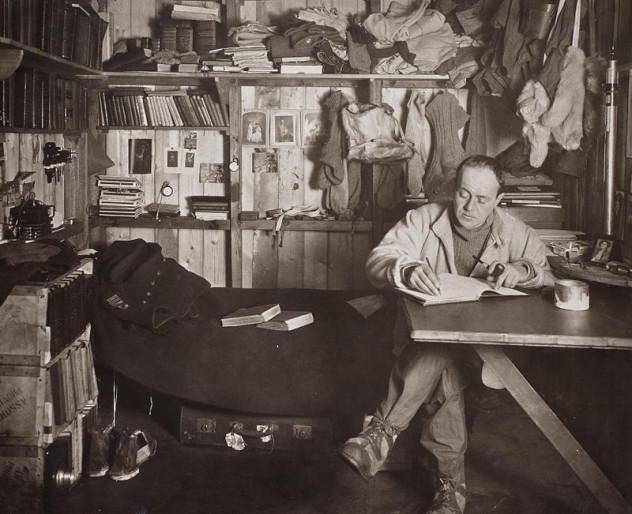 Since the 21st we have had a continuous gale from W.S.W. and S.W. We had fuel to make two cups of tea apiece and bare food for two days on the 20th. Every day we have been ready to start for our depot 11 miles away, but outside the door of the tent it remains a scene of whirling drift. I do not think we can hope for any better things now. We shall stick it out to the end, but we are getting weaker, of course, and the end cannot be far.
Since the 21st we have had a continuous gale from W.S.W. and S.W. We had fuel to make two cups of tea apiece and bare food for two days on the 20th. Every day we have been ready to start for our depot 11 miles away, but outside the door of the tent it remains a scene of whirling drift. I do not think we can hope for any better things now. We shall stick it out to the end, but we are getting weaker, of course, and the end cannot be far.
Captain Robert Scott was a British explorer and leader of an expedition to the South Pole in November 1911. If Scott and his four companions succeeded, they would have been the first humans to reach the isolated coordinates.
On January 17, 1912, two months after the expedition began, the team came within miles of the pole when they discovered the heartbreaking evidence of a Norwegian team who had arrived at the pole almost a month earlier. The team now faced a long and arduous journey back to civilization knowing that it would be the Norwegians, led by Roald Amundsen, who would go down in history for completing one of the greatest expeditions to date. As it so happened, Scott and his team would be remembered by history for the tragedy that would unfold on the return journey.
The weather throughout the journey was worse than expected, and there hadn’t been enough support arranged for dogs to help pull the sleds. On February 17, the team suffered their first loss, Edgar Evans, who had shown signs of exhaustion and severe frostbite. One month later on March 16, Lawrence Oates declared to the group he was unable to go on with such agonizing frostbite. Rather than making his comrades witness his death, Oates walked out of the tent into a severe blizzard, never to be seen again. A few days later, the three remaining men were prevented from making advances to the nearby supply depot by dreadful snowstorms and high winds. Stuck in their tent from March 19 to 29, Scott, Wilson, and Bowers slowly ran out of supplies and became increasingly frostbitten and exhausted. The above entry in Scott’s diary was most likely written on the day he died. The bodies of the three men were found by a recovery party eight months later, huddled together in frozen sleeping bags.
8 Jack Kerouac
August 23, 1948
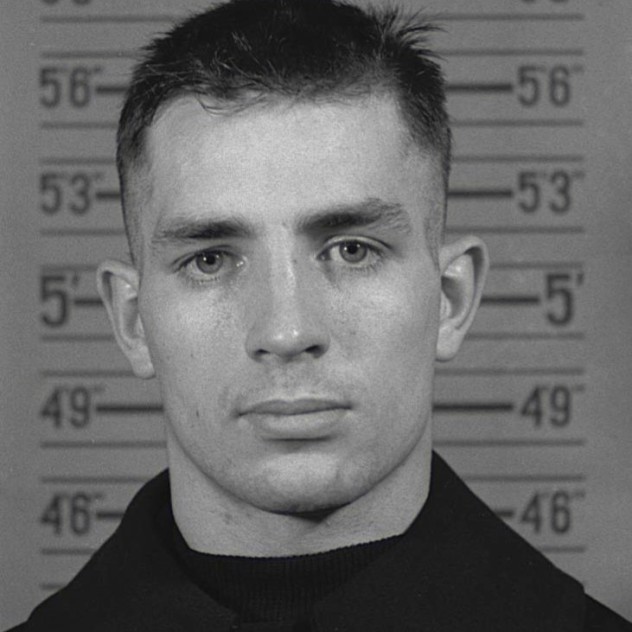 Told my mother she ought to go live down South with the family instead of spending all her time slaving in shoe factories. In Russia they slave for the State, here they slave for Expenses. People rush off to meaningless jobs day after day, you see them coughing in the subways at dawn. They squander their souls on things like “rent,” “decent clothes,” “gas and electricity,” “insurance,” behaving like peasants who have just come out of the fields and are so dreadful tickled because they can buy baubles and doodads in stores.
Told my mother she ought to go live down South with the family instead of spending all her time slaving in shoe factories. In Russia they slave for the State, here they slave for Expenses. People rush off to meaningless jobs day after day, you see them coughing in the subways at dawn. They squander their souls on things like “rent,” “decent clothes,” “gas and electricity,” “insurance,” behaving like peasants who have just come out of the fields and are so dreadful tickled because they can buy baubles and doodads in stores.
My life is going to be a farm where I’ll grow my food. I won’t do nothing but sit under a tree while my crops are growing, drink homemade wine, write novels to edify my soul, play with my kids, and thumb my nose at the coughing wretches. The next thing you know, they’ll all be marching off to some annihilating war which their leaders will start to keep up appearances. Shit on the Russians, shit on the Americans, shit on them all.
Two years before his first published novel, The Town and the City, Kerouac wrote in his personal diary of his disdain for the modern culture of consumerism. Kerouac was 26 years old and living with his parents above a drug store in New York. It is no surprise that he mentions his mother in his diary; Kerouac was unashamedly devoted to her his whole life.
Kerouac had already become friends with Allen Ginsberg, Neal Cassady, William S. Burroughs, and several others who together would become pioneers of the “Beat Generation.” They formed a counterculture that came to life in the 1950s across America. Many of the Beat Generation’s criticisms of American culture can be seen in Kerouac’s diary entry, particularly the rampant consumerism that dominated postwar America.
And what of Kerouac’s dream of living on a farm, growing his own food, and drinking his wine? Well, he never owned or lived on a farm, but he did drink plenty of wine in his later years, a habit that would eventually cause him severe health problems before his death at the age of 47.
7 Andy Warhol
May 2, 1985
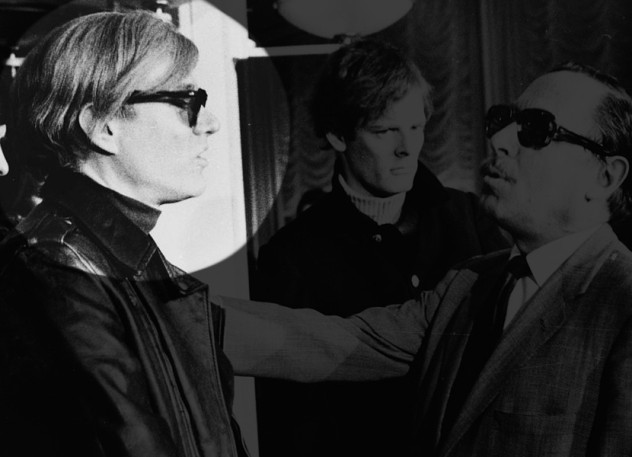 And Bianca was driving me crazy, saying how she’s researching my days in Pittsburgh for her book on Great Men, and she went on and on about how I broke the system, broke the system, broke the system, and I felt like saying, “Look, Bianca, I’m just here. I’m just a working person. How did I break the system?” God, she’s dumb.
And Bianca was driving me crazy, saying how she’s researching my days in Pittsburgh for her book on Great Men, and she went on and on about how I broke the system, broke the system, broke the system, and I felt like saying, “Look, Bianca, I’m just here. I’m just a working person. How did I break the system?” God, she’s dumb.
Written over an 11-year period from 1976 to 1987, the diaries of Andy Warhol document the artist’s day-to-day life. Before the age of reality television and gossip columns, Warhol’s diary gave an insight into his life of parties, celebrity acquaintances, and neurotic thoughts.
The diary is unashamedly superficial and often a mundane list of people Warhol had met or what he had bought from shops. It is, however, a very honest account of how Warhol saw himself and the world. In the above passage from 1985, he is referring to a conversation with Bianca Jagger, ex-wife of Rolling Stones front man Mick Jagger.
Despite Warhol’s incredible fame and adulation, he was aware that his art was just a job with which he happened to find success. While Warhol was often rude and crass about other celebrities’ appearances and personalities in his diary, he was under no illusions of grandeur about his work. At over 800 pages long, the diary is quite a hefty read, but for those willing to sift through the banal anecdotes, there are occasional interesting thoughts about his art, New York in the ’70s and ’80s, and the consequences of the AIDS epidemic among the gay community.
6 Franz Kafka
April 27, 1915
 Incapable of living with people, of speaking. Complete immersion in myself, thinking of myself. Apathetic, witless, fearful. I have nothing to say to anyone—never.
Incapable of living with people, of speaking. Complete immersion in myself, thinking of myself. Apathetic, witless, fearful. I have nothing to say to anyone—never.
Franz Kafka was known by few people during his lifetime. While he published a handful of short stories and novels during his life, it wasn’t until after his death in 1924 that he gained recognition in the literary world. He was born in Prague but brought up to speak German, the language he used in his novels and diaries. Kafka’s life was one of alienation and illness. He grew up in a family that showed very little love to each other, and his father was bullying and tyrannical.
Written when Kafka was 31 years old, the above quote is representative of his social outlook. He often spent time alone and hated himself for it, believing he would never find love or be able to have a family. In addition his social anxiety and depression, he suffered from migraines, insomnia, constipation, boils, and tuberculosis, which would eventually kill him. These setbacks caused him to immerse himself in his writing. He accumulated a large body of work before his death, but his lack of confidence caused him to ask his friend to burn all his papers. His friend obviously betrayed this request and sent all his work to publishers. While this is a plus for lovers of literature, it is in some sense a tragedy that Kafka could not witness the adulation that his writing gained.
5 George S. Patton
May 1, 1944
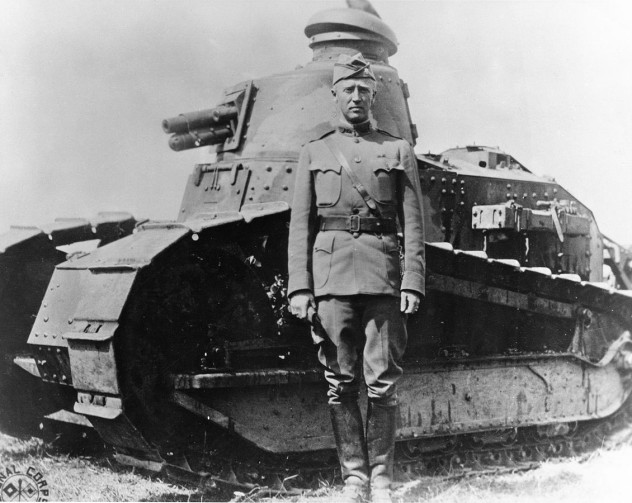 I feel like death, but I am not out yet. If they will let me fight, I will; but if not, I will resign so as to be able to talk, and then I will tell the truth, and possibly do my country more good. All the way home, 5 hours, I recited poetry to myself.
I feel like death, but I am not out yet. If they will let me fight, I will; but if not, I will resign so as to be able to talk, and then I will tell the truth, and possibly do my country more good. All the way home, 5 hours, I recited poetry to myself.
“If you can make a heap of all your winnings / And risk them on one game of pitch and toss / And lose, and start at your beginning / And never breathe a word about your loss.”
“I dared extreme occasion and never one betrayed.”
My final thought on the matter is that I am destined to achieve some great thing—what I don’t know, but this last incident was so trivial in its nature, but so terrible in its effect, that it is not the result of an accident but the work of God. His Will be done.
By May 1944, General Patton of the United States Army had already shown himself to be an accomplished World War II leader. He had led successful offensives in North Africa (1942) and Sicily (1943). At the time of this entry in his diary, D-Day, the most important Allied offensive of the war, was just six weeks away.
Despite his skill as a general, he was prone to making political errors. This diary entry was written following a meeting with President Eisenhower in which General Patton was reprimanded for a comment he made to the press. Patton had told a journalist in London that he believed the United States and Britain were destined to rule the world. This had reportedly upset the Soviet allies, who had been fighting a much bloodier war against the Germans on the Eastern front. Patton acknowledged that the mistake was trivial, but the effects had been huge.
This was not the first time Patton caused controversy. In August 1943, he attracted negative attention after slapping two of his men who were in military hospitals recovering from “battle fatigue.” Patton held the belief that such an illness was cowardice and that letting them leave the front line gave out the wrong impression to other soldiers.
4 Ernest Hemingway
1908
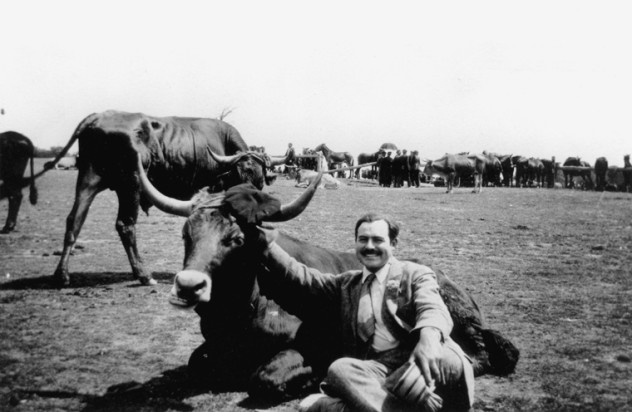 My name is Ernest Miller Hemingway I was born on July 21 1899. My favourite authors are Kipling, O. Henry and Steuart Edward White. My favourite flower is Lady Slipper and Tiger Lily. My favourite sports are Trout fishing, Hiking, shooting, football and boxing. My favourite studies are English, Zoology and Chemistry. I intend to travel and write.
My name is Ernest Miller Hemingway I was born on July 21 1899. My favourite authors are Kipling, O. Henry and Steuart Edward White. My favourite flower is Lady Slipper and Tiger Lily. My favourite sports are Trout fishing, Hiking, shooting, football and boxing. My favourite studies are English, Zoology and Chemistry. I intend to travel and write.
This is the first-ever diary entry of a nine-year-old Ernest Hemingway. Even as a child, we can see the traits of the direct and simplistic writing style that Hemingway became know for. Many nine-year-old boys have ideas about what they want to be when they grow up, but rarely do such visions come true. In the case of Hemingway, however, he did indeed write and travel extensively. He also became a great huntsman and fisherman, often pictured throughout his life with the animals he had slain and captured.
The innocence of the diary entry is a far cry from the events that unfolded 52 years later. After a long history of alcoholism and mental illness, Hemingway killed himself at the age of 61.
3 Josef Goebbels
November 6, 1925
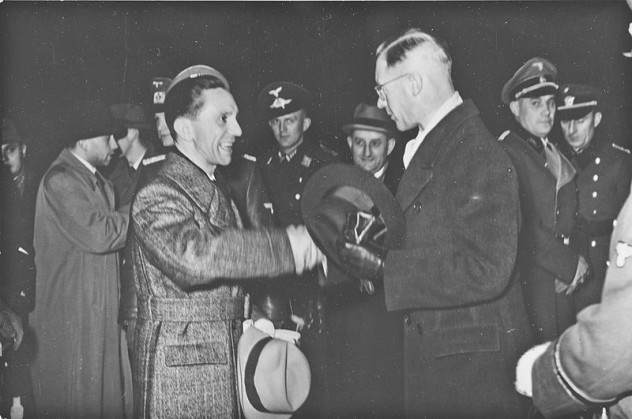 We drive to Hitler. He is having his meal. He jumps to his feet, there he is. Shakes my hand. Like an old friend. And those big blue eyes. Like stars. He is glad to see me. I am in heaven. That man has got everything to be a king. A born tribune. The coming dictator.
We drive to Hitler. He is having his meal. He jumps to his feet, there he is. Shakes my hand. Like an old friend. And those big blue eyes. Like stars. He is glad to see me. I am in heaven. That man has got everything to be a king. A born tribune. The coming dictator.
One of the most infamous members of the Nazi Party, Josef Goebbels had a prominent position under Adolf Hitler, serving as Minister for Propaganda between 1933 and 1945. Years earlier in 1925, he was appointed district leader of the Nazi Party in Berlin. The above quote from his diary documents his first meeting with Hitler after being appointed to the position.
Goebbels wrote diaries throughout his time in the Nazi Party, and the entries from his early days give a remarkable insight into how Goebbels became enthralled by Hitler and Nazi ideology. His diaries are often written in a dramatic prose with short, sharp sentences describing his excitement at the progress of the Nazi Party in Germany. He was 28 at the time, but his adulation for Hitler resembles that of a young child toward his father.
In February 1926, his adoration for Hitler grew so much he simply stated in his diary, “Adolf Hitler, I love you.”
This close relationship gave Goebbels an invitation into Hitler’s inner circle. When Hitler became Chancellor in January 1933, Goebbels set about systematically controlling the nation’s media in order to spread hatred of the Jewish people. In April 1945, one day after Hitler’s death, Goebbels killed himself along with his wife and children, having decided that there was no future “without their Fuehrer to lead and guide them.”
2 Kurt Cobain
1992
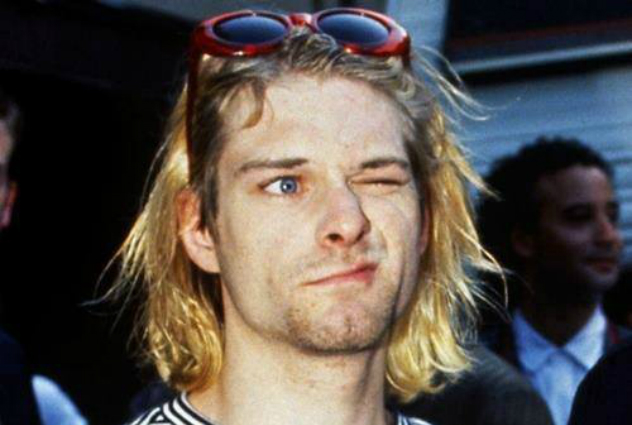
I kind of feel like a dork writing about myself like this as if I were an American pop-rock icon-demi God, or a self-confessed product of corporate-packaged rebellion, but I’ve heard so many insanely exhaggerated stories or reports from my friends and Ive read so many pathetic second rate, freudian evaluations from interviews from my childhood up until the present state of my personality and how I’m a notoriously f—ed up heroine addict, alcoholic, self destructive, yet overtly sensitive, frail, fragile, soft spoken, narcoleptic, neurotic, little pissant who at any minute is going to O.D. jump off a roof wig out blow my head off or all 3 at once. Oh Pleez GAWD I can’t handle the success! The success! And I feel so incredibly guilty! For abandoning my true commrades who were the ones who are devoted who were into us a few years ago. And in 10 years when NIRVANA becomes as memorable as Kajagoogoo that same very small percent will come to see us at reunion gigs sponsored by Depends diapers, bald fat still trying to RAWK at amusement parks. Saturdays: puppet show, rollercoaster & Nirvana . . .
Published in 2002, Journals is a collection of diary entries, letters, lyrics, and drawings composed during Kurt Cobain’s time as front man of the band Nirvana. The release of the book was a controversy, as many fans believe that the entries were private and not for public viewing. The above writing from his journal is part of an open letter to Nirvana fans that was not released during Cobain’s lifetime.
In the summer of 1992, Nirvana had been together for four years, and Cobain had married Courtney Love just months earlier. He had also been in and out of rehab during that year in an attempt to kick a heroin habit he had developed while suffering from a stomach ulcer. Kobain notes in his diary, “So after protein drinks, becoming a vegetarian, exercise, stopping smoking, and doctor after doctor I decided to relieve my pain with small doses of heroin for a walloping three whole weeks.”
There are many revealing confessions and revelations from his journals, but this may be one of the most important in piecing together how his life ended under such tragic circumstances. Cobain felt he had let his true fans down and lost a part of his identity. As he stated in a 1993 MTV interview, he was torn between his love for making music and the consequences of being famous: “I wanted to have the adoration of John Lennon but have the anonymity of Ringo Starr. I didn’t want to be a frontman; I just wanted to be back there and still be a rock and roll star at the same time.”
1 Virginia Woolf
March 27, 1941
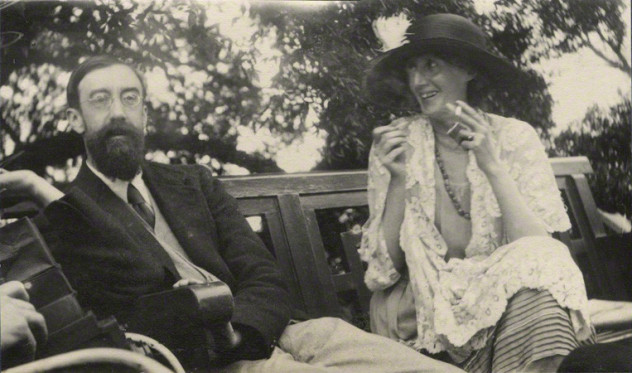 She had a nose like the Duke of Wellington & great horse teeth & cold prominent eyes. When we came in she was sitting perched on a 3 cornered chair with knitting in her hands. An arrow fastened her collar. And before 5 minutes had passed she told us that two of her sons had been killed in the war. This, one felt, was to her credit. She taught dressmaking. Everything in the room was red brown & glossy. Sitting there I tried to coin a few compliments. But they perished in the icy sea between us. And then there was nothing.
She had a nose like the Duke of Wellington & great horse teeth & cold prominent eyes. When we came in she was sitting perched on a 3 cornered chair with knitting in her hands. An arrow fastened her collar. And before 5 minutes had passed she told us that two of her sons had been killed in the war. This, one felt, was to her credit. She taught dressmaking. Everything in the room was red brown & glossy. Sitting there I tried to coin a few compliments. But they perished in the icy sea between us. And then there was nothing.
The day before her suicide in 1941, Virginia Woolf wrote the above entry into her diary, documenting a meeting with doctor and psychologist Octavia Wilberforce. Although never officially diagnosed during her lifetime, it is widely accepted that the author suffered from bipolar disorder. This meeting with Wilberforce, set up by Woolf’s husband, Leonard Woolf, was one of his many attempts to cure his wife’s mental illness.
Understanding of mental illness at the time was generally poor. If she had not been a respected writer, she would most probably have been locked away in an asylum. From the age of 13 onward, after the death of her mother, she was prone to manic episodes during which she would often hear voices in her head. She suffered through five bouts of serious depression and various suicide attempts. By 1941, at the age of 59, she acknowledged that she was unable to fight through the episodes that had begun to consume her, writing to her husband, “I feel certain now that I am going mad again. I feel we can’t go through another of those terrible times. And I shan’t recover this time.”


